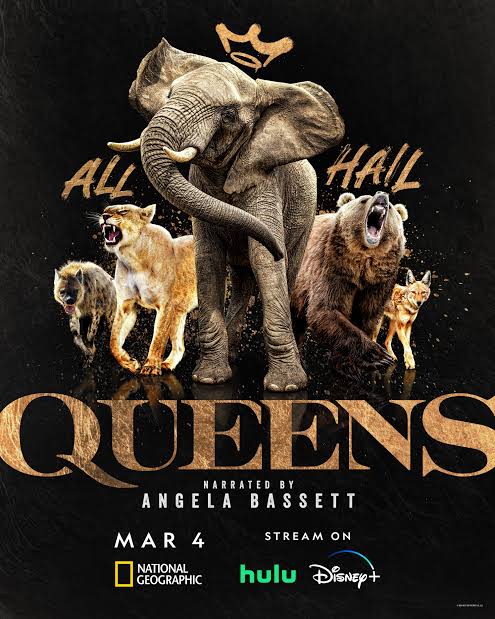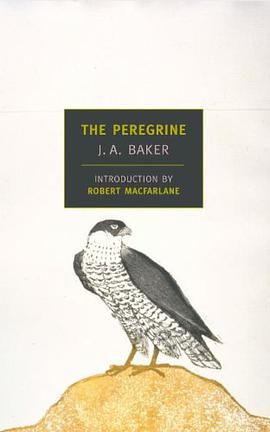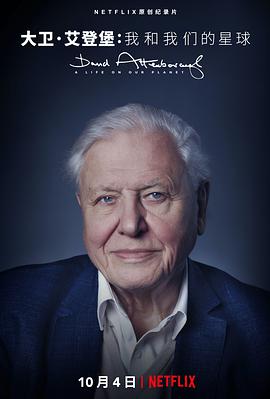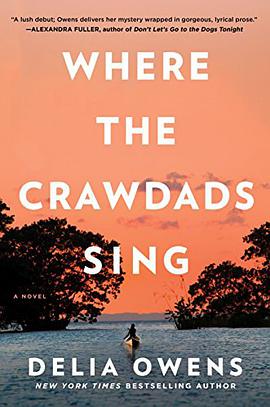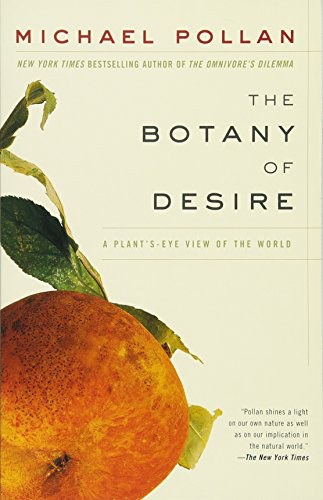自然
The Peregrine 豆瓣 Goodreads
作者:
Baker, J. A.
NYRB Classics
2004
- 12
From fall to spring, J.A. Baker set out to track the daily comings and goings of a pair of peregrine falcons across the flat fen lands of eastern England. He followed the birds obsessively, observing them in the air and on the ground, in pursuit of their prey, making a kill, eating, and at rest, activities he describes with an extraordinary fusion of precision and poetry. And as he continued his mysterious private quest, his sense of human self slowly dissolved, to be replaced with the alien and implacable consciousness of a hawk.
It is this extraordinary metamorphosis, magical and terrifying, that these beautifully written pages record.
It is this extraordinary metamorphosis, magical and terrifying, that these beautifully written pages record.
大卫·爱登堡:地球上的一段生命旅程 (2020) 豆瓣 TMDB IMDb 维基数据
David Attenborough: A Life on Our Planet
9.4 (80 个评分)
导演:
艾雷斯泰·法瑟吉尔
/
基思·肖利
…
演员:
大卫·爱登堡
/
Max Hughes
其它标题:
David Attenborough: A Life on Our Planet
/
大卫·艾登堡:活在我们的星球(台)
…
这部独特的纪录长片由获奖野生动物电影制作公司 Silverback Films 和全球环境组织 WWF 共同制作,由一个比其他任何人都更了解自然界的人为我们讲述这个星球上的生命的故事。在 90 多年的时间里,爱登堡走访了地球上的每一块大陆,探索了这个星球上的荒野之地,记录了生物世界的多样性和奇妙之处。这部电影为未来几代人提供了面对地球上巨大挑战的强有力并充满希望的信息。 这部电影是爱登堡对自然界的解说,于 2020 年 10 月 4 日在 Netflix 面向全球上映。
Where the Crawdads Sing 豆瓣
7.2 (16 个评分)
作者:
Delia Owens
Putnam
2018
- 8
For years, rumors of the "Marsh Girl" have haunted Barkley Cove, a quiet town on the North Carolina coast. So in late 1969, when handsome Chase Andrews is found dead, the locals immediately suspect Kya Clark, the so-called Marsh Girl. But Kya is not what they say. Sensitive and intelligent, she has survived for years alone in the marsh that she calls home, finding friends in the gulls and lessons in the sand. Then the time comes when she yearns to be touched and loved. When two young men from town become intrigued by her wild beauty, Kya opens herself to a new life--until the unthinkable happens.
The Botany of Desire 豆瓣
作者:
Michael Pollan
Random House Trade Paperbacks
2002
- 5
In The Botany of Desire, Michael Pollan argues that the answer lies at the heart of the intimately reciprocal relationship between people and plants. In telling the stories of four familiar plant species that are deeply woven into the fabric of our lives, Pollan illustrates how they evolved to satisfy humankinds’s most basic yearnings — and by doing so made themselves indispensable. For, just as we’ve benefited from these plants, the plants, in the grand co-evolutionary scheme that Pollan evokes so brilliantly, have done well by us. The sweetness of apples, for example, induced the early Americans to spread the species, giving the tree a whole new continent in which to blossom. So who is really domesticating whom?
Weaving fascinating anecdotes and accessible science into gorgeous prose, Pollan takes us on an absorbing journey that will change the way we think about our place in nature.
Amazon.com's Best of 2001
Working in his garden one day, Michael Pollan hit pay dirt in the form of an idea: do plants, he wondered, use humans as much as we use them? While the question is not entirely original, the way Pollan examines this complex coevolution by looking at the natural world from the perspective of plants is unique. The result is a fascinating and engaging look at the true nature of domestication.
In making his point, Pollan focuses on the relationship between humans and four specific plants: apples, tulips, marijuana, and potatoes. He uses the history of John Chapman (Johnny Appleseed) to illustrate how both the apple's sweetness and its role in the production of alcoholic cider made it appealing to settlers moving west, thus greatly expanding the plant's range. He also explains how human manipulation of the plant has weakened it, so that "modern apples require more pesticide than any other food crop." The tulipomania of 17th-century Holland is a backdrop for his examination of the role the tulip's beauty played in wildly influencing human behavior to both the benefit and detriment of the plant (the markings that made the tulip so attractive to the Dutch were actually caused by a virus). His excellent discussion of the potato combines a history of the plant with a prime example of how biotechnology is changing our relationship to nature. As part of his research, Pollan visited the Monsanto company headquarters and planted some of their NewLeaf brand potatoes in his gardenseeds that had been genetically engineered to produce their own insecticide. Though they worked as advertised, he made some startling discoveries, primarily that the NewLeaf plants themselves are registered as a pesticide by the EPA and that federal law prohibits anyone from reaping more than one crop per seed packet. And in a interesting aside, he explains how a global desire for consistently perfect French fries contributes to both damaging monoculture and the genetic engineering necessary to support it.
Pollan has read widely on the subject and elegantly combines literary, historical, philosophical, and scientific references with engaging anecdotes, giving readers much to ponder while weeding their gardens. Shawn Carkonen
Weaving fascinating anecdotes and accessible science into gorgeous prose, Pollan takes us on an absorbing journey that will change the way we think about our place in nature.
Amazon.com's Best of 2001
Working in his garden one day, Michael Pollan hit pay dirt in the form of an idea: do plants, he wondered, use humans as much as we use them? While the question is not entirely original, the way Pollan examines this complex coevolution by looking at the natural world from the perspective of plants is unique. The result is a fascinating and engaging look at the true nature of domestication.
In making his point, Pollan focuses on the relationship between humans and four specific plants: apples, tulips, marijuana, and potatoes. He uses the history of John Chapman (Johnny Appleseed) to illustrate how both the apple's sweetness and its role in the production of alcoholic cider made it appealing to settlers moving west, thus greatly expanding the plant's range. He also explains how human manipulation of the plant has weakened it, so that "modern apples require more pesticide than any other food crop." The tulipomania of 17th-century Holland is a backdrop for his examination of the role the tulip's beauty played in wildly influencing human behavior to both the benefit and detriment of the plant (the markings that made the tulip so attractive to the Dutch were actually caused by a virus). His excellent discussion of the potato combines a history of the plant with a prime example of how biotechnology is changing our relationship to nature. As part of his research, Pollan visited the Monsanto company headquarters and planted some of their NewLeaf brand potatoes in his gardenseeds that had been genetically engineered to produce their own insecticide. Though they worked as advertised, he made some startling discoveries, primarily that the NewLeaf plants themselves are registered as a pesticide by the EPA and that federal law prohibits anyone from reaping more than one crop per seed packet. And in a interesting aside, he explains how a global desire for consistently perfect French fries contributes to both damaging monoculture and the genetic engineering necessary to support it.
Pollan has read widely on the subject and elegantly combines literary, historical, philosophical, and scientific references with engaging anecdotes, giving readers much to ponder while weeding their gardens. Shawn Carkonen
